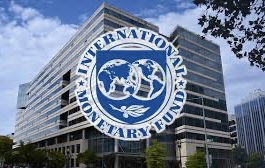The excruciating economic hardship Nigerians are going through notwithstanding, the International Monetary Fund (IMF) has asked the federal government to completely phase out petrol and electricity subsidies in the country, a move that has the potential of worsening the country’s economic woes.
The IMF made the recommendation while advising Nigeria on pathways to restoring macroeconomic stability in its ‘Post Financing Assessment (PFA)’ report.
Nigeria’s liquidity-challenged power sector is currently not allowed to charge a cost-reflective tariff due to a subsidy paid on electricity by the government.
The government reportedly spent N204.59 billion on electricity subsidy in the third quarter (Q3) of 2023, and additional N1.6 trillion is projected to be spent in 2024 to enable citizens access power at a low cost.
The Brentwood institution, however believes this is a luxury the country cannot afford, adding that the country’s macroeconomic stability lies in the complete phase out of subsidies in petrol and electricity.
‘FUEL, ELECTRICITY SUBSIDIES ARE COSTLY’
“The new administration has made a strong start, tackling deep-rooted structural issues in challenging circumstances,” the IMF said.
The lender said the government also implemented a civil service wage award, and suspended the value-added tax (VAT) on diesel to ease the impact of the rapidly rising inflation on living conditions.
The institution, however, called for a total removal of petrol and electricity subsidies, saying they are expensive and often do not reach the most vulnerable groups.
‘FUEL, ELECTRICITY SUBSIDIES ARE COSTLY’
“The new administration has made a strong start, tackling deep-rooted structural issues in challenging circumstances,” the IMF said.
“The CBN has set out on a welcome path of monetary tightening. The Governor has committed to making price stability the core objective of monetary policy, and the CBN has taken actions to mop up excess liquidity. Continuing to raise the monetary policy rate until it is positive in real terms would be an important signal of the direction of monetary policy.
“The government’s focus on revenue mobilization and digitalization would improve public service delivery and safeguard fiscal sustainability. The envisaged reduction in the overall deficit in 2024 would help contain debt vulnerabilities and eliminate the need for CBN financing.”
The institution said temporary and targeted support to the most vulnerable in the form of social transfers is needed, given the ongoing cost-of-living crisis.
The IMF noted that fuel and electricity subsidies are costly, do not reach those that most need government support “and should be phased out completely”.




